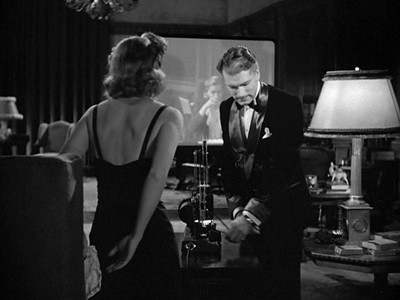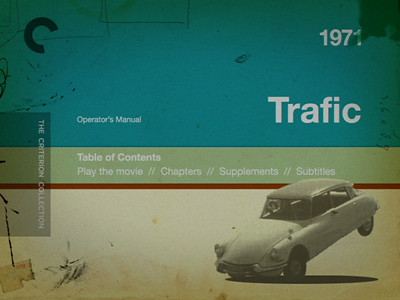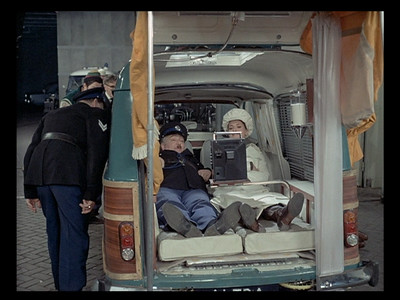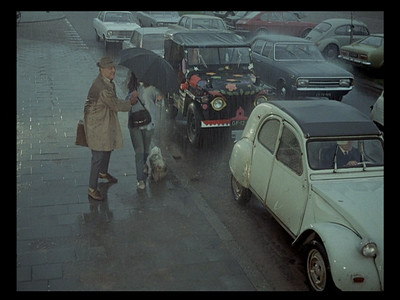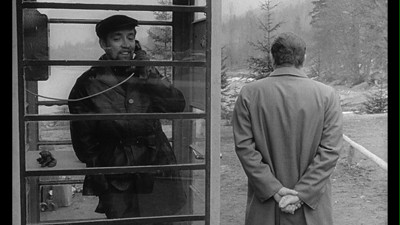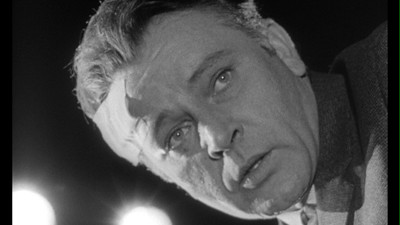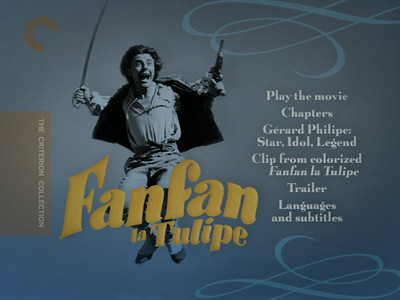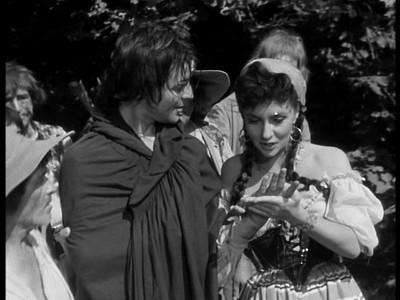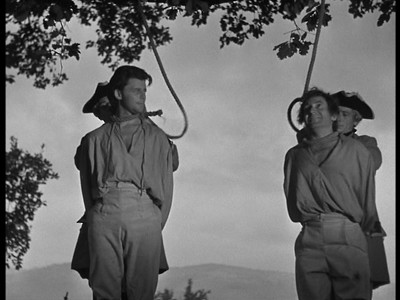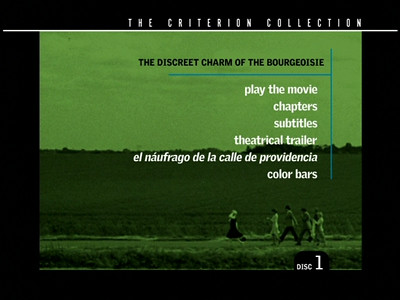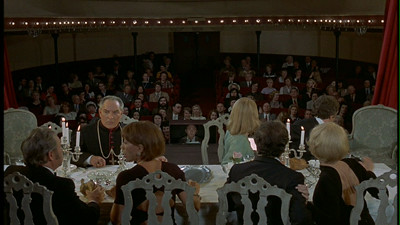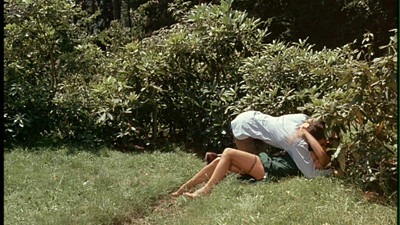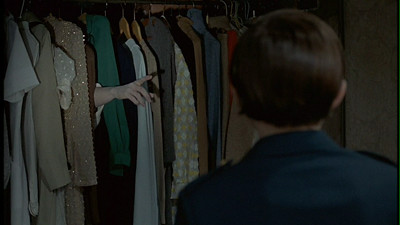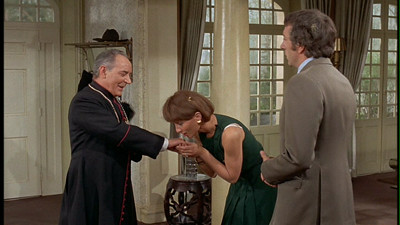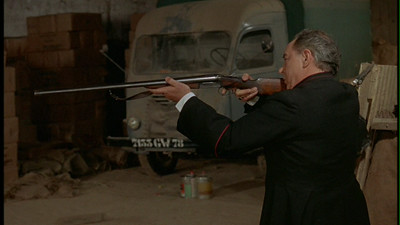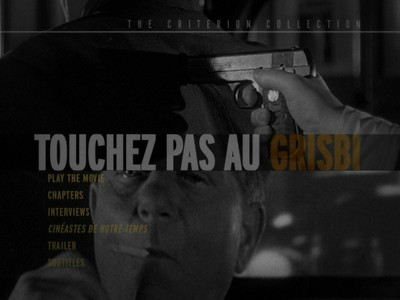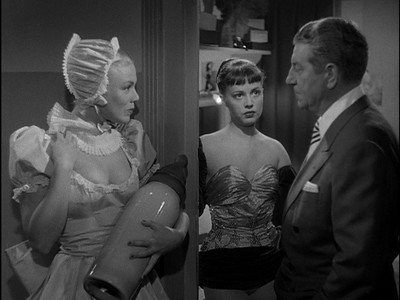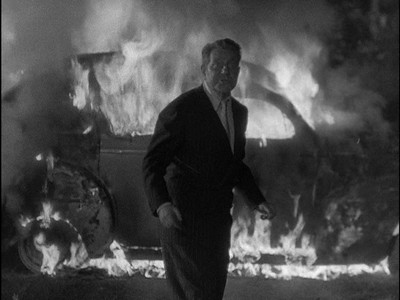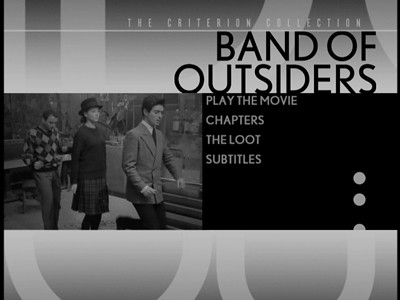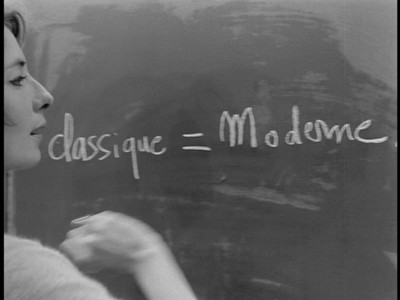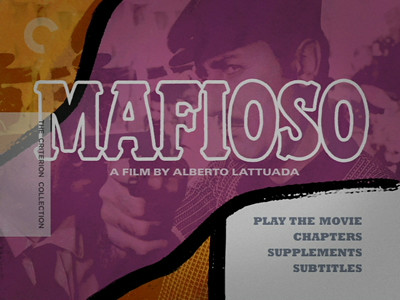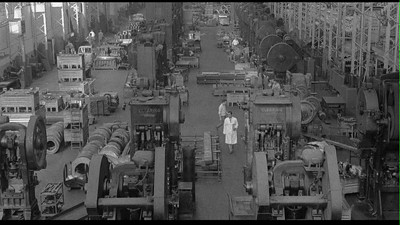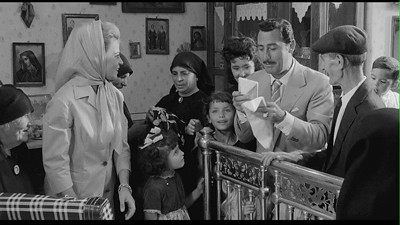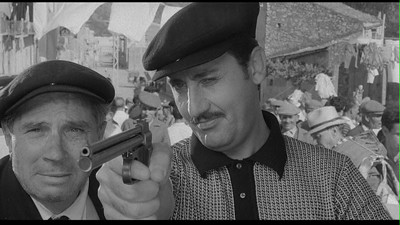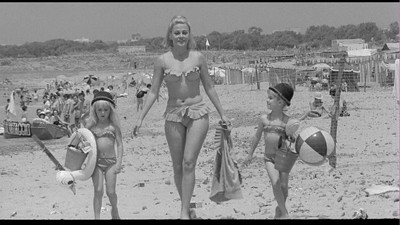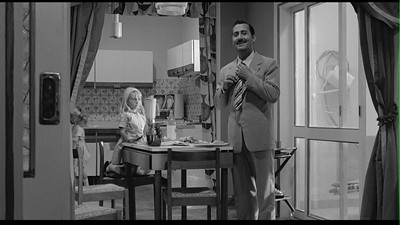I was recently assigned the task of
reviewing the eight-disc Alfred Hitchcock Premiere Collection for DVD Talk. Amongst the early movies contained therein are the three films that had previously been available from Criterion,
Notorious and the two films reviewed here. Below are the somewhat shorter write-ups I did for this lengthy piece.
* Rebecca (1940): The movie that brought Alfred Hitchcock to America. Producer David O. Selznick, who was achieving great success through his literary adaptations, needed someone to helm his film of Daphne du Maurier's
Rebecca; Hitch was his man.
Rebecca follows the classic model of many a gothic romance. A young woman (Joan Fontaine), given no name and only identified by the "I" in her first-person narrative, has a chance encounter with the dark and mysterious Maxim de Winter (Laurence Olivier). Though of a higher class, de Winter falls for the girl, marries her, and takes her to his spacious estate, Manderlay. There, the opulence is balanced out by the darkness within its proprietor. Maxim is obsessed with his dead wife, the titular Rebecca, and her presence is felt throughout the mansion. The girl also runs into trouble with the governess of Manderlay, Mrs. Danvers (Judith Anderson), who is very protective of the legacy of her former mistress and her own position at Manderlay. She pushes the new Mrs. de Winter into several blunders, including having her dress in the same costume that Rebecca wore to a ball, all triggering more of Maxim's melancholic moods.
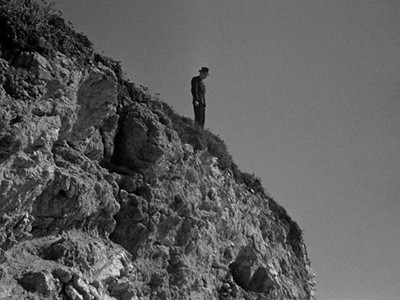
The specter of Rebecca is tied up in Rebecca's mysterious death. Ruled a suicide, it is called under suspicion by the dead woman's former lover, Jack (a delightful George Sanders). Uncovering what really happened might free the house of her memory, but with the added threat of Mrs. Danvers, it may take more than that. The Manderlay house is like an otherworldly presence, almost like something out of Poe. Rebecca and, by association, Mrs. Danvers may be too inextricably linked to the surroundings, and the house exerts such an influence on all things in and around it, even the forest that borders it often appears to lean in to destroy the new romantic intruder, reminiscent in a way of the forest turning on Snow White in
the Disney movie
.
Likewise, Hitchcock creates a spooky atmosphere by using the novel's narrative voice. The famous opening line, "Last night, I dreamt I went to Manderlay again," accomplishes several things right from the start. First, the invocation of a dream suggests something separate from everyday reality. Second, it establishes the voice of "I" as an almost ghostly personage unto itself. Third, the past-tense reference to the home tells us that these events have already happened, fate has already decided. Thus, there is an inescapable dread hanging over the new bride.
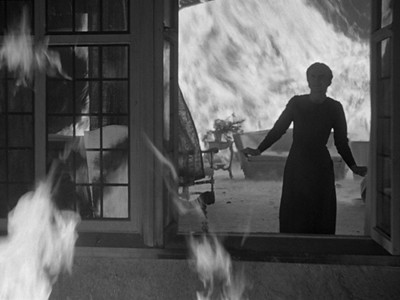
The use of these many elements--the voiceover, the landscape, the macabre maid--all work toward creating an air of breathless suspense that locks into the similarly breathless passion of the romance quite snugly. Laurence Olivier was always fantastic at playing brooding lovers, including his turn as Heathcliff in
Wuthering Heights
and, to a degree, his
Hamlet. Joan Fontaine's fragile portrayal of his second wife works very well in conjunction with his performance. Though her character has a sense of the world beyond your average ingénue, the ingénue inside her still struggles to keep a toehold, making her not all that dissimilar from Rebecca. She doesn't want to let go of her innocence because she still wishes to enjoy the storybook love affair she has found herself in.
Of course, for all the good work of the leads, the performer that audiences find it nearly impossible to forget is Judith Anderson. Mrs. Danvers is a haunting, strange villainess, with a complicated sexuality that further complicates her murky motives. She can accept no other outcome but to go down with the ship--or, as it were, the house. Separation from her beloved would be a fate worse than death.
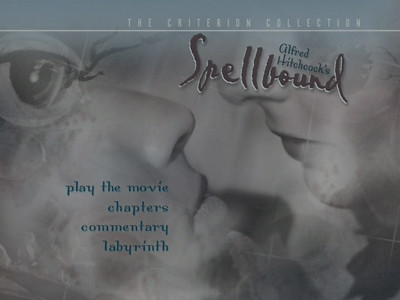
* Spellbound (1945): An early delving into the realms of the mind for Hitchcock, who would continue to be fascinated by the psychological tricks we play on ourselves when dealing with extraordinary circumstances. Though
Vertigo is more famous in this area,
Spellbound is notable for its dream sequence designed with Salvador Dali, a mini surrealist movie within the movie that provides the key to the mystery. It also has a more passionate and less twisted romance where the female character is more of a participant and less of a victim.
Ingrid Bergman plays Dr. Constance Peters, a psychiatrist at a mental institution who is all about business. Her deep understanding of the human psyche has an ironic consequence in the fact that she has very little emotion in her real life. This changes when the dreamy Dr. Anthony Edwards (Gregory Peck) comes to the hospital. The two fall in love, and the mysterious stranger begins to melt her heart. The only problem is that Dr. Edwards isn't who he says he is, he is an amnesiac who assumed this new identity after the real doctor's death. Known now as John, he must go on the lam, but Constance is convinced of his innocence and she uses a dream he related to her to try to find out what really happened.
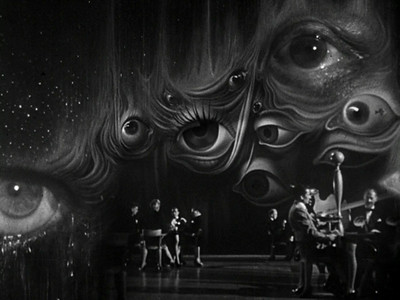
This dream establishes an intriguing center for
Spellbound, providing Hitchcock with his most ethereal MacGuffin--the prize located at the back of a man's consciousness. Featuring eyeball and scissor-motifs (reminiscent of Dali's collaboration with
Luis Bunuel), it uses creative sets and forced perspective to capture the illogical, otherworldly feel of sleeping life. A lot of the sets are pure Dali, with giant faces and melted shapes, and an animated shadow chasing a tiny Gregory Peck represents the flight anxiety so often recurrent in real dreams. Between this and other sensory triggers, such as seeing snow and wavy lines, Constance leads her patient toward repressed childhood memories, experiences that came back to him when Edwards was killed, overwhelming him so much that he suppressed his whole personality in a manner similar to post-traumatic stress disorder. Decoding this, and retrieving his memories, leads to the discovery of the real killer.
The style of
Spellbound is very much like your average detective story, it's just that the clues are all hidden within rather than without. The recovery of John's mind ends up linked to the recovery of Constance's heart, creating one of Hitchcock's most fiery, desperate romances. Peck and Bergman make for a great couple, two beautiful people with intense speaking voices, and in Constance's delving into John's psyche, the pair of actors prove evenly matched, eye to eye, word for word. Love conquers all in the end, and splendidly so.

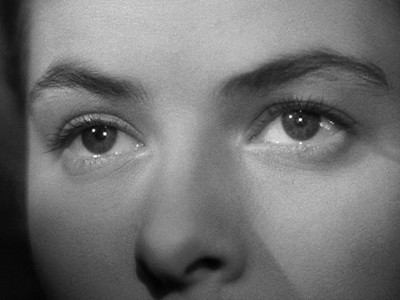
On a personal note, I should mention how
Rebecca had an influence on my novel
Have You Seen the Horizon Lately?
In the book, I use Hitchcock movies as a binding element in the family of the female lead, Julia, a way for her to relate to her parents. There is also mention of how bad things happen on trains in Hitchcock movies, sparking the whole movie reminiscence when Julia is riding one. Amusingly, I make a similar observation regarding Julie Christie films in one of my stories for the forthcoming Spearmint comics anthology,
This is a Souvenir.
More important, though, is the influence the movie had on the character of Val, the rather obviously named valet of the male lead, Percy. In figuring out Val's character and his protection of his exiled master, Mrs. Danvers was an important source. So much so, that I made sure to acknowledge it in one of the final conversations, once again allowing Hitchcock movies to bind two characters, to give them a way to relate to each other. Such is the power of cinema.
